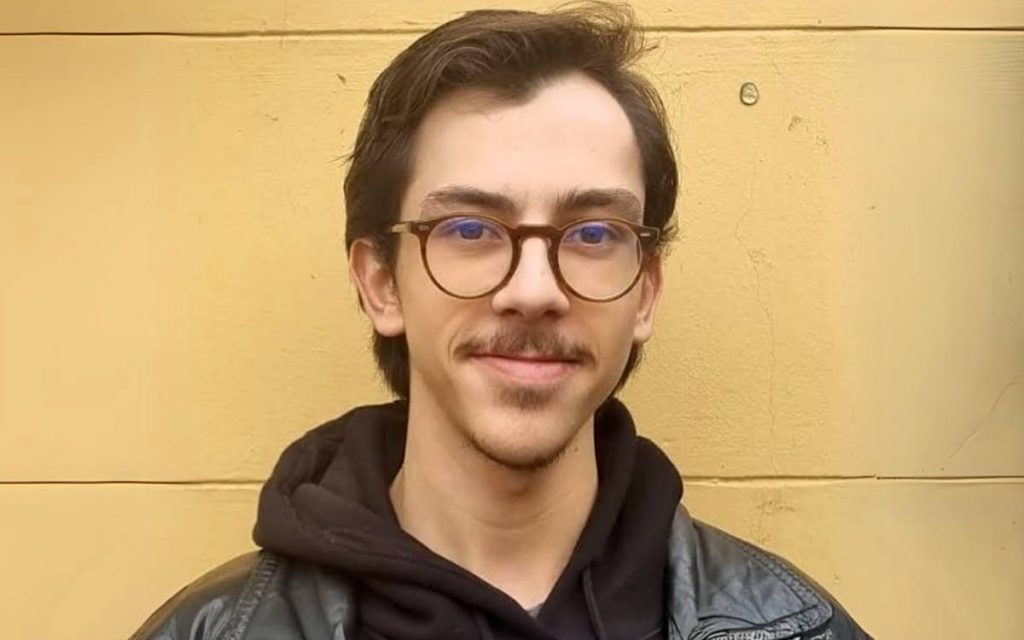| Article Subheadings |
|---|
| 1) Overview of the Incident |
| 2) The Protest and Its Context |
| 3) Treatment of Journalists During Arrest |
| 4) Press Organizations’ Responses |
| 5) Implications for Press Freedom |
A recent incident at İstanbul’s Boğaziçi University has brought attention to the treatment of journalists covering protests in Turkey. On May 13, journalist Can Öztürk was detained while reporting on a student protest targeting a controversial cleric, Nureddin Yıldız. The protest was marred by police violence and mass detainments, raising significant concerns regarding the freedom of the press and the treatment of media personnel in Turkey.
Overview of the Incident
On May 14, Can Öztürk, a reporter for T24 news, was released under judicial supervision after being detained the previous day during a student protest at Boğaziçi University. The protest, which aimed to draw attention to an event featuring cleric Nureddin Yıldız, turned chaotic when police intervened. Almost 100 individuals were reportedly detained as police employed heavy-handed tactics during the demonstration. This incident highlights ongoing issues concerning press freedoms and the judiciary’s treatment of journalists in such contexts.
The Protest and Its Context
The protest at Boğaziçi University was primarily directed against Nureddin Yıldız, a cleric whose views have sparked considerable uproar for advocating outdated norms such as child marriage and domestic violence. The event occurred at a time when the university community has been increasingly vocal about social justice issues, particularly in relation to women’s rights and reform in gender policies. The timing of the protest is particularly significant given recent political strife and the arrest of İstanbul’s former mayor, Ekrem İmamoğlu, earlier in March, a situation which has galvanized many sectors of society against perceived injustices. Demonstrators aimed to voice their discontent with Yıldız’s presence on campus, marking the event as both a political and social uprising against problematic ideologies.
Treatment of Journalists During Arrest
The treatment of Can Öztürk during his detention underscored the challenging environment journalists face in Turkey. Reports describe him being subjected to aggressive handling by police officers, including the destruction of his press credentials. During his detention, he recalled how a riot officer ripped his press card from his neck and physically assaulted him, stating,
“We won’t let you share those videos.”
He also claims that despite repeatedly identifying himself as a journalist and attempting to exit the situation, he was not permitted to do so. This incident lasted for around eight hours during which he was held in a police vehicle while handcuffed, highlighting a troubling pattern of mistreatment in the handling of journalistic activities.
Press Organizations’ Responses
Press organizations quickly condemned the events surrounding Öztürk’s detention. The Contemporary Journalists Association (ÇGD) expressed outrage, stating,
“Our colleague Can Öztürk was detained while doing his job. We demand his immediate release and strongly condemn the police’s aggressive stance toward journalists.”
Similarly, representatives from Reporters Without Borders denounced the circumstances of his arrest, calling attention to the need for protective measures for journalists. In a parallel statement, the Turkish Journalists’ Union emphasized that the police records corroborate Öztürk’s claims, urging for his immediate release and demanding accountability for the violent conduct exhibited by law enforcement.
Implications for Press Freedom
The incident involving Can Öztürk is emblematic of broader trends threatening press freedoms in Turkey. As journalists increasingly find themselves caught in the crosshairs of political controversies, arrests and detentions have become more common in recent years. The Journalists Union of Turkey (TGS) reported a systematic attempt by police to frame journalists as participants rather than observers in protests. This has raised alarms about the credibility of evidence presented against detained journalists, with accusations of manipulated footage and cropped images being submitted as justification for their arrests. Such actions can have a chilling effect not only on media professionals but also on the larger fight for freedom of expression within the country.
| No. | Key Points |
|---|---|
| 1 | Journalist Can Öztürk was detained while covering a protest at Boğaziçi University. |
| 2 | The protest targeted cleric Nureddin Yıldız for his controversial views on child marriage. |
| 3 | Öztürk faced mistreatment and violence during his arrest, including damage to his press credentials. |
| 4 | Press organizations condemned the police actions and called for better protections for journalists. |
| 5 | The incident reflects the broader issues relating to press freedom in Turkey. |
Summary
The detention of journalist Can Öztürk while covering a protest at Boğaziçi University exemplifies the increasing peril surrounding media freedoms in Turkey. As protests against controversial figures like Nureddin Yıldız continue, so does the pattern of violence and repression directed at those reporting on these events. The reactions from press organizations indicate a significant concern regarding the treatment of media personnel and highlight an urgent need for protective frameworks as Turkey navigates its complex socio-political landscape.
Frequently Asked Questions
Question: What prompted the protest at Boğaziçi University?
The protest was prompted by a scheduled event featuring Nureddin Yıldız, a cleric whose controversial views on child marriage and domestic violence have drawn public ire.
Question: How did the police respond to the protest?
The police intervened forcefully during the protest, detaining nearly 100 individuals, including journalists like Can Öztürk, citing alleged participation in the protests.
Question: What has been the reaction from press organizations regarding Öztürk’s detention?
Press organizations have condemned the treatment of Can Öztürk, highlighting the importance of protecting journalists and denouncing the aggressive actions of law enforcement during his arrest.
